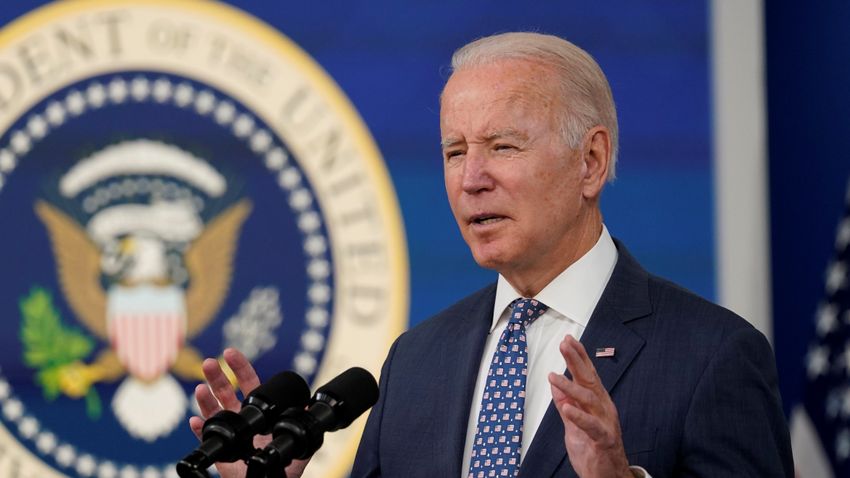Joe Biden’s Scylla and Charybdis
(Russia) on 24 November 2021
by Leonid Gankin (link to original)
A comparison of the presidential actions of two sworn enemies, former President Donald Trump and current President Joseph Biden, paints an interesting picture. It helps to properly point out the goals and actions of both leaders that extend beyond personal views and party affiliations and address America's national interest.
Trump decided to withdraw U.S. troops from Afghanistan, deeming their presence wasteful and pointless. But he was not reelected, and therefore did not get a chance to implement his plan. Instead, Biden, Trump’s opponent and rival, withdrew the troops, although not in the most successful way.
Trump sharply changed course toward China. He understood that if he left things as they were and did not start pressing the Celestial Empire on all fronts, the world’s largest power would run circles around the U.S. in the foreseeable future, becoming the sole world leader. Once he took office, Trump eagerly got down to business, making several strong moves – from setting up trade barriers for Chinese goods to detaining Meng Wanzhou, Chinese tech giant Huawei Technologies' chief financial officer and the company founder’s daughter, in Canada. One would have thought that once Biden took office, there would be a 180-degree change of direction. But no! U.S. foreign policy regarding China has become slightly more calculated and Huawei’s CFO has been released. However, the U.S. has begun forming anti-Chinese military alliances. Containing China is a U.S. national interest in its purest form.
Trump came to power with the firm intention to establish normal relations with Russia. Not because he had some kind of secret ties to the Kremlin, as his opponents have suspected and continue to suspect, but primarily because he wanted to free the U.S. from its conflict with China. He also thought that cooperation with Russia would help him resolve important issues regarding Iran, Syria and North Korea. However, the stigma of Comrade Trump’s Kremlin ties, which his Democratic foes are convinced helped him win the 2016 U.S. presidential election, prevented him from realizing his plans to normalize U.S.-Russia relations.
And so Biden became president, and, as it seemed, had to raise the bar on confrontation with Russia. After all, Biden is Trump’s opposite and a Democrat, meaning, among other things, that he holds a grudge against Moscow. But today we are seeing how Biden is trying to establish a dialogue with Russian President Vladimir Putin, sending envoys to Moscow, trying to organize a summit and negotiating normalizing U.S.-Russia diplomatic relations. But Biden has been caught in the same trap as Trump. A significant portion of American leadership and many allies abroad demand that Biden stay tough on Russia. And any step toward meeting Russia halfway causes wild resistance. Biden could attempt to overcome these demands, but this would require him to throw all of his rather insignificant political capital into the balance, which would prevent him from solving other more important matters. Biden has found himself between the Scylla of long-term strategy and the Charybdis of the political environment. It is unlikely he will be able to overcome this bottleneck. There will be no prospect of reconciliation with Russia for the benefit of realizing America’s national interest until a stronger leader takes office in the U.S.

